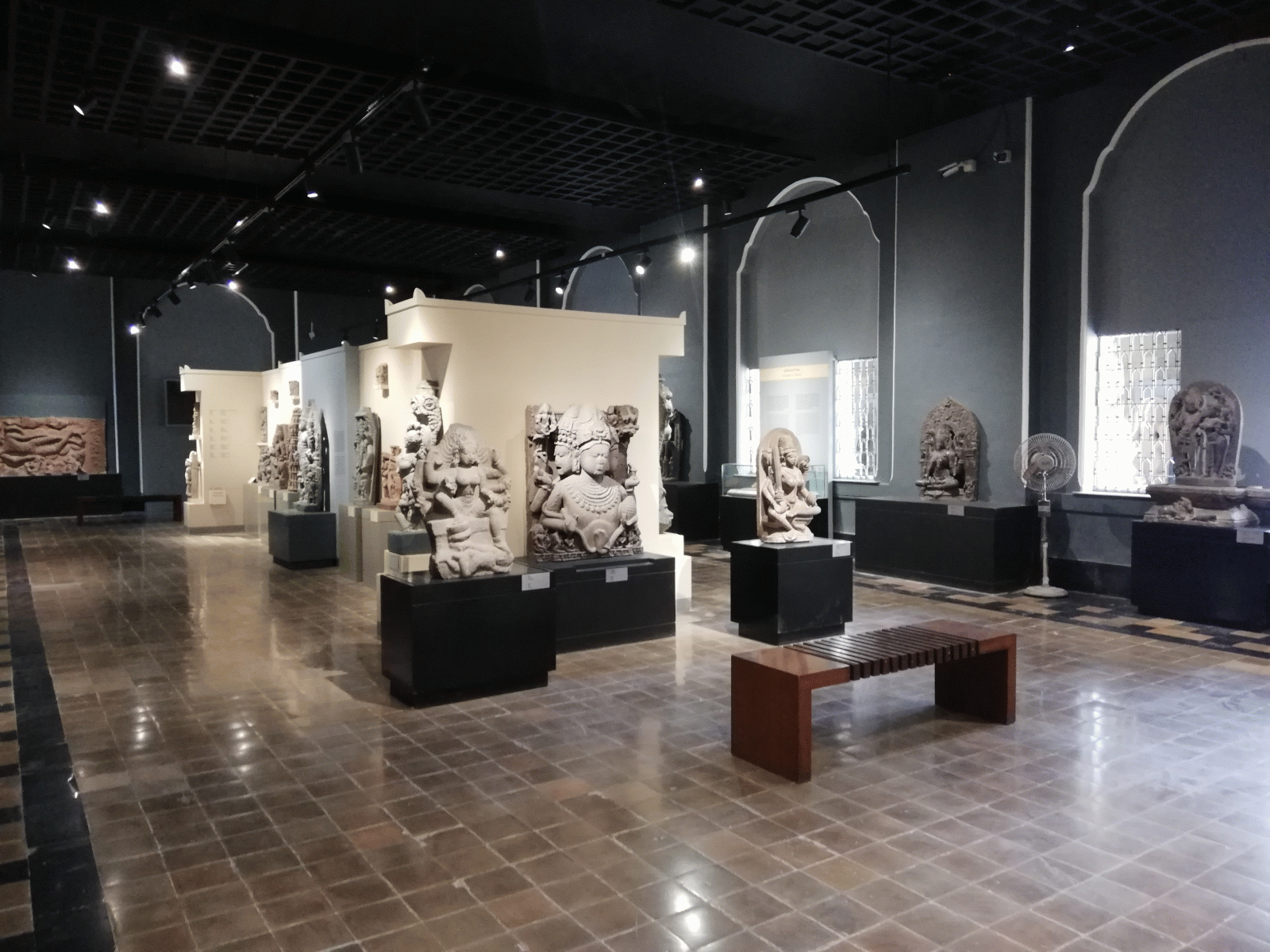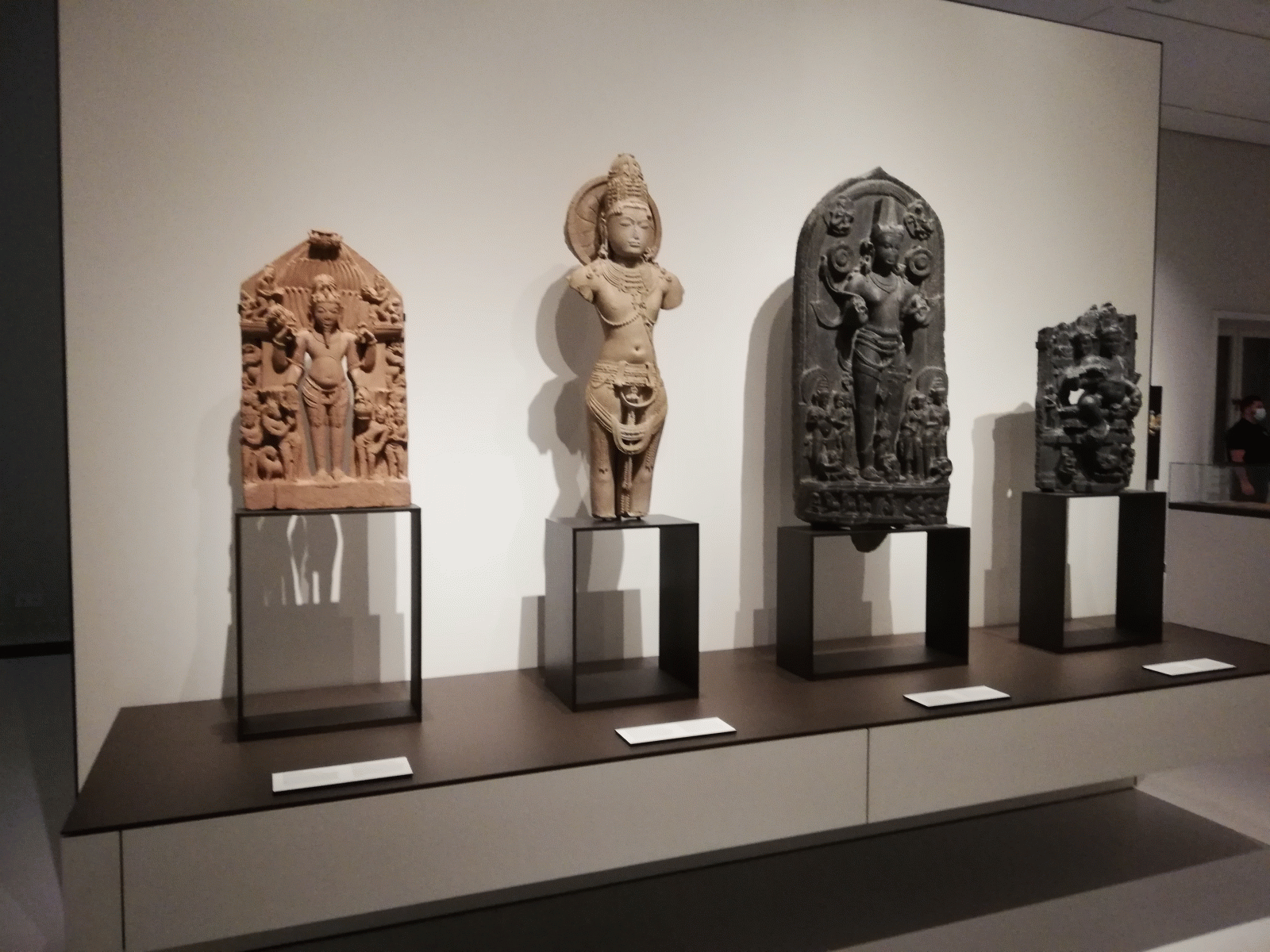Ricerca
Decolonising Museum Narratives: A Comparative Study
Shraddha Bhatawadekar

Sculpture Gallery, Chhatrapati Shivaji Maharaj Vastu Sangrahalaya, Mumbai; Photo: Shraddha Bhatawadekar, 2022.
In recent years, growing efforts have been underway to decolonise museum practices and narratives rooted in the legacy of colonialism. Across many museums, strategies for object collection, exhibition, and interpretation are undergoing transformations. Within this changing context, this research aims to understand how Indian artefacts are being presented in museums today and what messages they convey through their display and interpretation. Besides critically investigating the power asymmetries, notions of othering, and cultural stereotypes embedded in museum narratives, the project adopts a comparative framework to trace the similarities and differences in the way Indian objects are being displayed in and outside India.
Since the concept of a modern museum was adopted in India under colonial rule, it is particularly intriguing to study how these legacies are being reflected in current museum displays. The project focuses on two institutions: Museum für Asiatische Kunst at the Humboldt Forum, Berlin, and Chhatrapati Shivaji Maharaj Vastu Sangrahalaya, Mumbai. These museums have been selected for their particular associations with colonial history and their current dynamics of ownership and operation, which offer an important context to study the objects represented. By using empirical research and ethnographic methods, this study undertakes an analysis of exhibitions at these two museums, with a particular focus on the educational and interpretive resources offered and the media used to evaluate their role in reinforcing particular narratives. While it strives to establish a common platform for Indian and European curatorial and interpretive practices, this research also sets out to explore the possibilities for developing inclusive education and learning programmes that would promote multivocality of narratives.
This research project is developed in cooperation with the DFG-Research Training Group 1913 – Cultural and Technological Significance of Historic Buildings at the Brandenburg University of Technology (BTU), Cottbus-Senftenberg and the international Research and Fellowship Program 4A_Laboratory: Art Histories, Archaeologies, Anthropologies, Aesthetics (Kunsthistorisches Institut in Florenz – MPI and Stiftung Preußischer Kulturbesitz).



